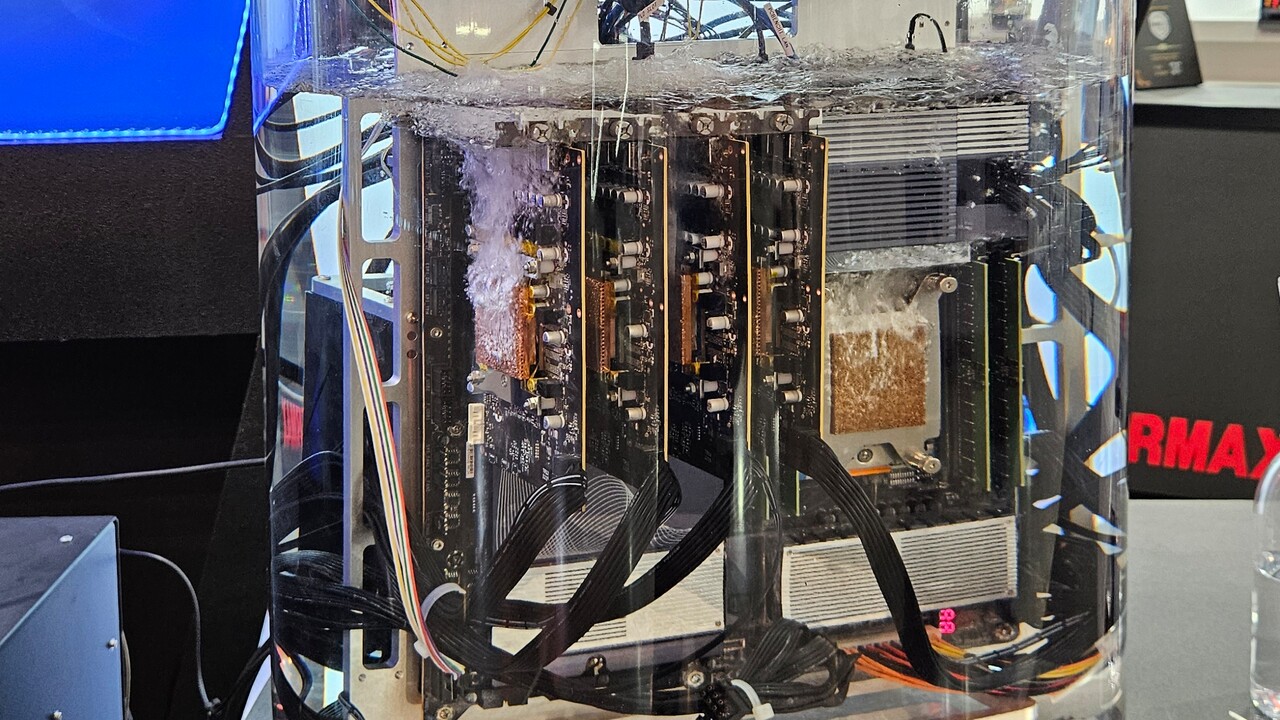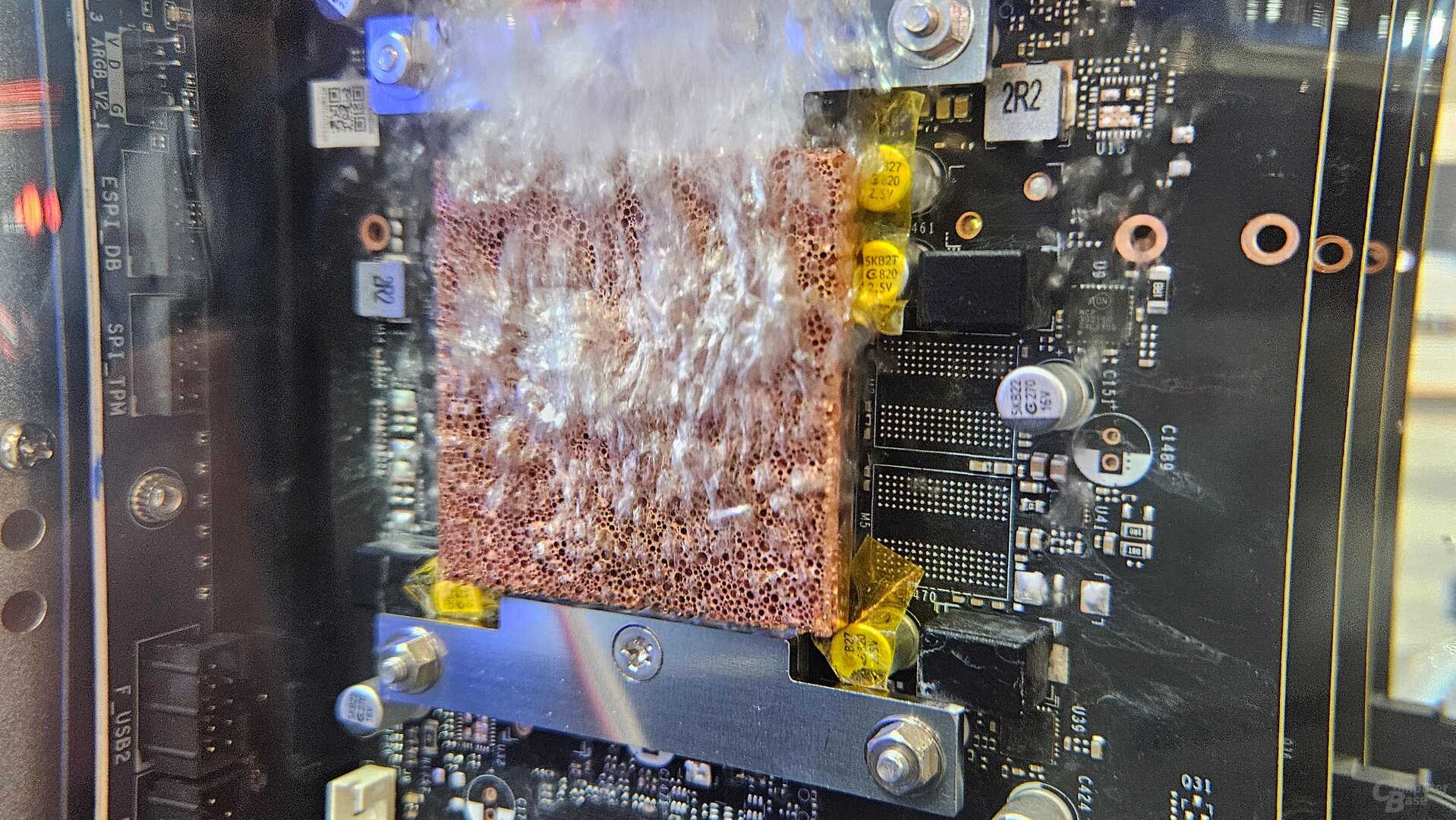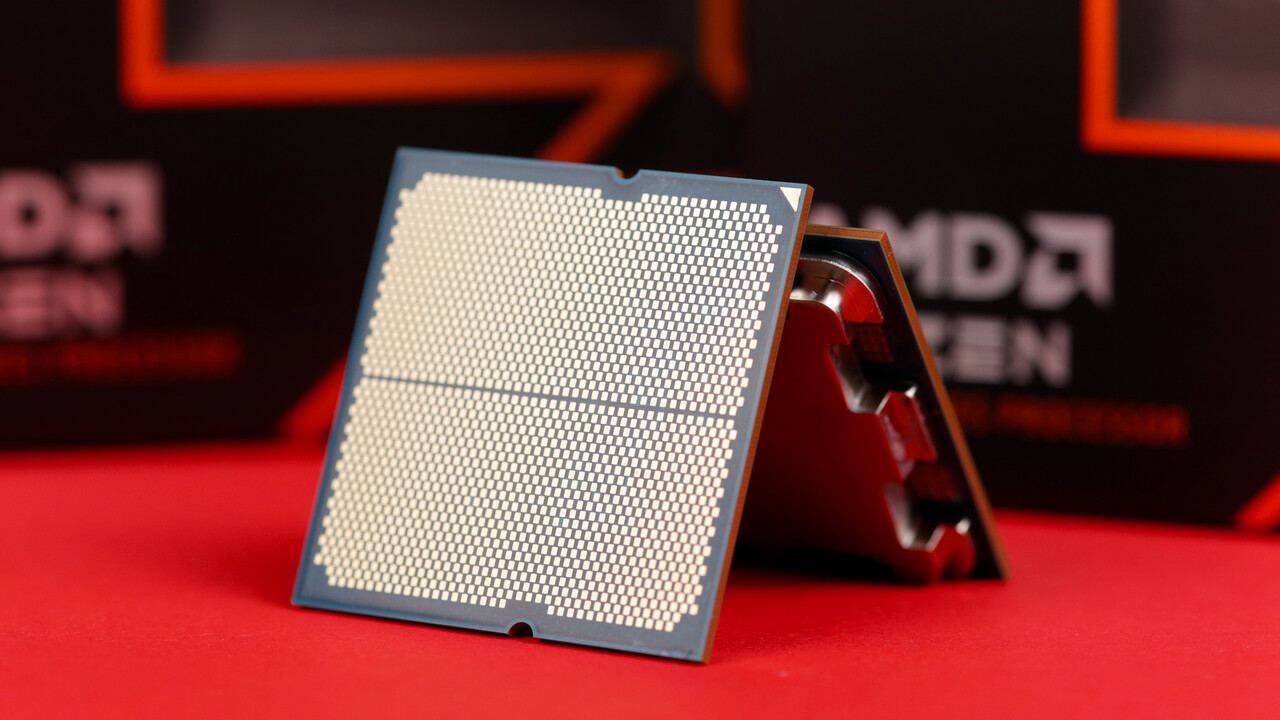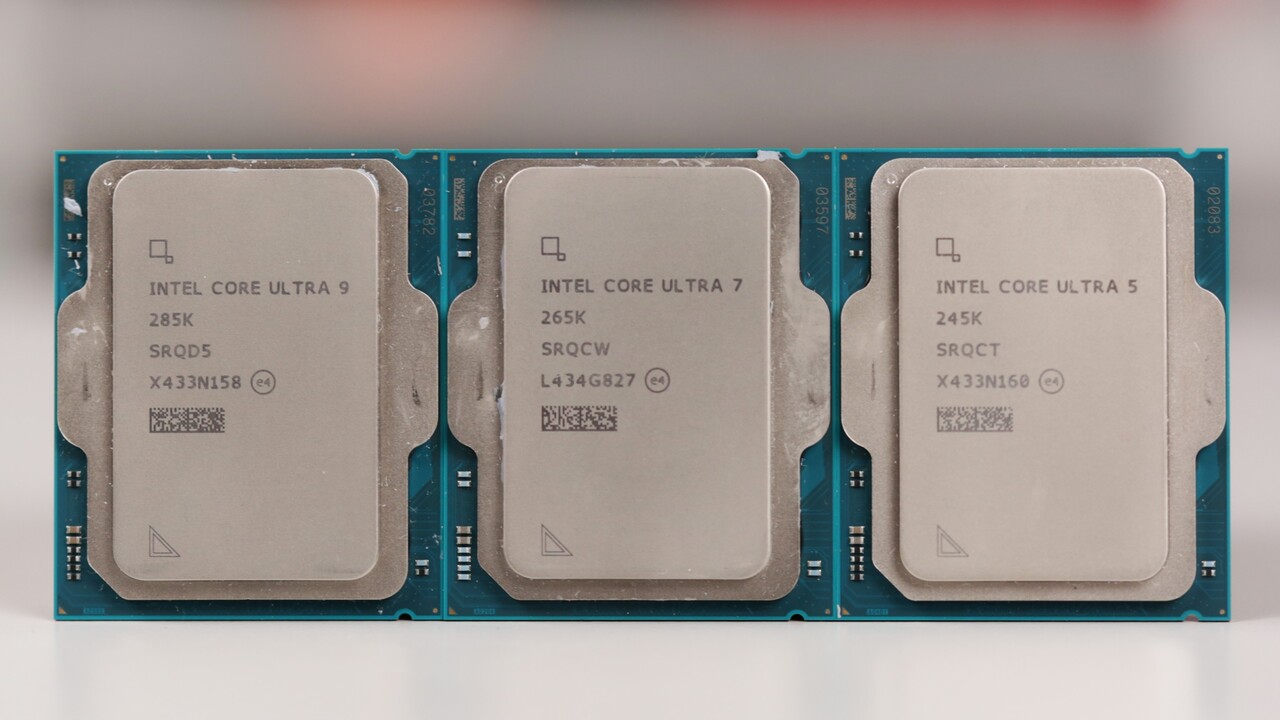Cooler Immersions Cirrus MK1: Enermax Sunk Thread Ripper and GeForce in the Reservoir 34 comments

Enterax can do more than just ordinary PC cooling. On ComputeX, the manufacturer showcased the Cirrus MK1 immersion cooling system. A Thread Ripper workstation with four GeForce graphics cards was sunk into the transparent reservoir filled with dielectric fluid. The cooling potential is expected to be 3,300 watts.
With immersion cooling, the components to be cooled are brought into direct contact with the liquid, which is therefore allowed to generate heat but not to generate electricity to prevent short circuits. Enermax Cirrus Mk1 in Use
The Cirrus Mk1 two-phase immersion cooler, which Enermax is showing at Computex 2025, consists, among other things, of a large acrylic glass tank filled with “short-chain PFAS” as a liquid coolant. Professional workstation hardware has been literally sunk in this area. An AMD Ryzen Threadripper 7960X with a 350-watt TDP and, theoretically, four high-end Nvidia GeForce RTX 5090 graphics cards with a 700-watt TDP are to be cooled with a combined TDP of 3,150 watts.
The “theoretical” note is important at this point, as only four GeForce RTX 4070s (200-watt TDP) were installed at the trade show demo, as the base computer was confirmed on-site. According to Enterax’s description, the Cirrus Mk1 should even be able to handle more than 3,300 watts. A conventional GeForce RTX 5090 is specified with a 575-watt TDP/TGP, but Enermax expects 700 watts, which is about overclocking.

Enterax Cirrus Mk1 Figure 1 of 4
Future AI Workbench
The 70 kg construction is intended to showcase a possible future for AI workstations. The maintenance fluid can absorb 100 times more heat than air. The cooling solution operates with two independent heat circuits. First, waste heat from the CPU and GPUs is transferred to the liquid. A capacitor then transfers it to an external heat exchanger. This also ensures that the coolant remains isolated from the environment. The system was powered by two 2,400-watt (Platimax II) power supplies.
Without the workstation components, the immersion cooler is expected to cost around $50,000.

Marc deciphers processors by testing their performance for gaming, content creation, and artificial intelligence.


